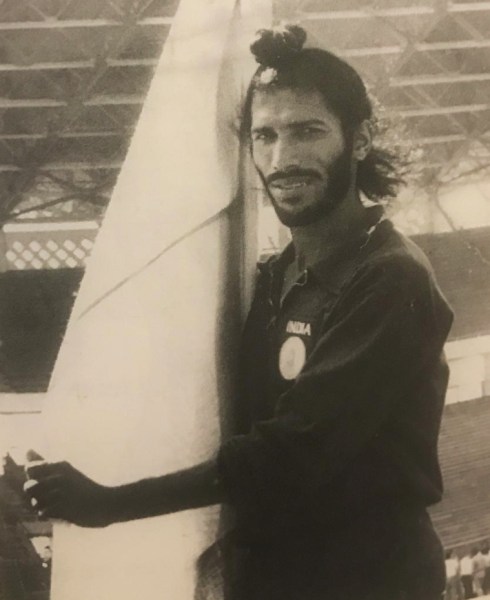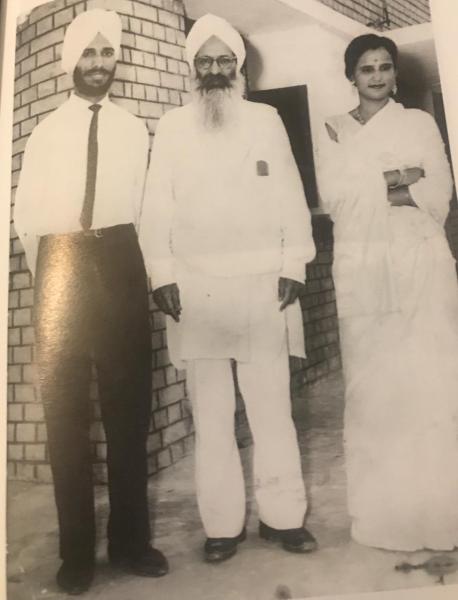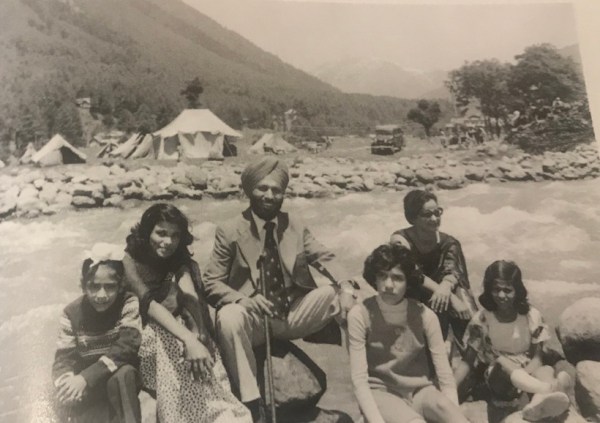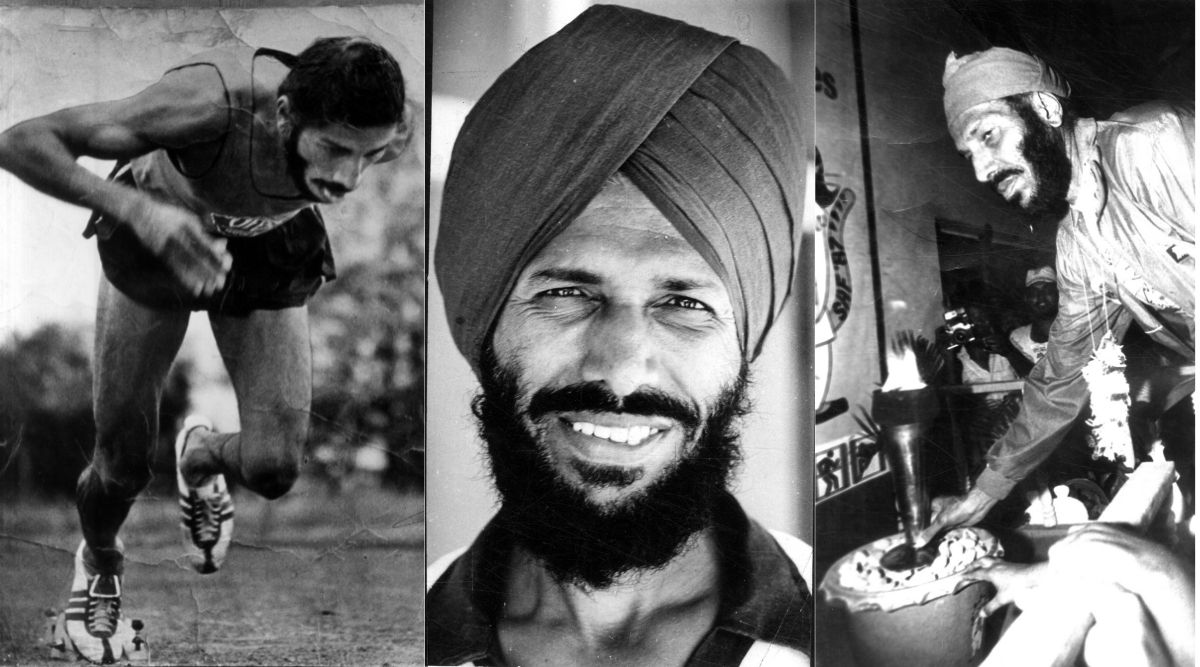India’s Milkha, Milkha’s India
Milkha Singh emerged — like India did — from the ashes of a tumultuous partition to become India’s greatest running legends
Milkha Singh succumbs to post-Covid complications on Friday. (Express Archive)
His was a lifetime that coincided with a new nation finding its feet and gradually growing wheels to sprint away to glory. Milkha Singh emerged — like India did — from the ashes of a tumultuous partition to become India’s greatest running legends. His story — told here in his own words — was intertwined with the young nation’s history.
****
“Seven of my 14 siblings died and the family did not have money to afford medical care. It was only when my elder brother Makhan Singh got enrolled in the then Indian British Army, that the family decided to send me to the higher secondary school, which was 12 kms away.”ADVERTISEMENT
— Early life in Pakistan
Born in village Gobindpura in Muzaffargarh district now in Pakistan in undivided India, Milkha’s ancestors hailed from Rajasthan. Second youngest child of his parents, Milkha would lose half of his 14 siblings to poor health and lack of medical care. His childhood was spent in poverty with the family living in a two-room house with one room reserved for the livestock.
Undivided India was still steeped in poverty and absence of access to basic health care.
****
“My father told me to seek help and hence I boarded the train from Kot Addu to Multan. The train was full of blood from the earlier trip and I hid in the ladies compartment urging some ladies to not tell the rioters. Later, I accompanied my brother’s wife in a military truck to Ferozepur in India, where I used to polish boots of soldiers to earn money.” Milkha Singh during 1962 Jakarta Asian Games. (Express Archive)
Milkha Singh during 1962 Jakarta Asian Games. (Express Archive)
— Partition
Two days after the partition in 1947, Milkha’s village would face riots. His father sent Milkha to Multan, where his elder brother Makhan Singh was posted. While Makhan would reach along with his unit at Kot Addu three days later, Milkha’s parents and two brothers were killed by the rioter.
Independent India would be birthed in the most violent circumstances, as partition scythed through families, leaving many dead.
****
“Sardar Gurdev Singh would run with us and when I finished second behind him in a cross country race, he told me about 400m track. When I asked him what it is, he said one round of the athletics track. I told him I can run 20 times but he said I have to put an effort of 20 rounds in one round.”
— 400m initiation, Milkha Singh memoirs
Milkha would stay at his sister-in-law and later at sister Ishar Kaur’s home after arriving in India. Struggling to manage two square meals, he would steal ration from government trains. On his third attempt, he would join the Army. After finishing 4th at the 1956 National Games, he made it to the Melbourne Olympics, finishing last in qualification.
The fledgling nation in its first decade, would settle into the early flurry of activity, rolling out 5-year plans and building the foundations.
****
“When I was taken for the interview, I could only say in whatever English I knew that ‘your son has fulfilled his duty and I demand this from every youngster in the country’.” Milkha Singh and wife Nirmal Milkha Singh with them Punjab CM Pratap Singh Kairon. (Photo via Milkha family)
Milkha Singh and wife Nirmal Milkha Singh with them Punjab CM Pratap Singh Kairon. (Photo via Milkha family)
— Empire Games gold, Newspaper reports
In 1958, Milkha would win 400m and 200m gold medals in Tokyo Asian Games. He defeated Asian record holder Abdul Khaliq in a photo finish in 200m clocking 46.6 seconds. One month later, Milkha would make it to the Empire Games final of the 440 yards. At Cardiff Arms Park, he would run a memorable race in front of 70,000 fans. He would edge out the then-world record holder Malcom Spence of South Africa. He received the medal from Queen Elizabeth with Vijaya Laxmi Pandit, the then Indian High Commissioner, also present.
India had well and truly hit its stride entering its second decade, and rubbing shoulders with the best in business. Shrugging off the colonial yoke, India was now winning in the land of its erstwhile rulers.
****
“History resulted in partition of India and Pakistan but I am Milkha Singh. Whose childhood was spent in Pakistan and youth was spent in India. Childhood taught me to fight poverty and youth taught me how to win. Wherever I ran, India and Pakistan both ran with me. Abdul Khaliq too was my shadow and sometimes shadows fall behind and sometimes come forward.”
— India-Pakistan, Autobiography written with Punjabi poet Pash.
Much before the movie Bhaag Milkha Bhaag made Milkha Singh a household name in modern India and showed the tragedy of partition in his life, the Flying Sikh, in his memoir, had written how both India and Pakistan had shaped his life. This reality also helped Milkha put into perspective his competitive rivalry with Pakistan’s Abdul Khaliq.
While frequent friction dogged India – Pakistan relations heading into the 1960s, survivors of the painful partition often acknowledged their affection for the country they were forced to leave.
****
“Even though it was my mistake of looking back midway in the race apart from the fact that I was running in the outer lane, it was all destiny. It was destiny that my parents could not see me winning medals.”
— Rome Olympics 4th finish
Between the heroics of Cardiff and later Jakarta Asian Games, Milkha would come close to realising his biggest dream of winning a medal in the Olympics. At the 400m final at the Rome Games, he finished fourth, 0.1 seconds behind Spence, a result decided by photo finish. America’s Otis Davis created a new world record of 44.9 seconds. Milkha, too, bettered the national mark with 45.6 seconds.
Milkha would almost set the tone for a clutch of famous fourth place finishes for India. This made the country realise that there would be many close misses at the highest global stage till a reward could fetch up.
****
“I could have opted for athletics or cricket but I always had the freedom to choose any game I liked. I would go to the golf course with my father and felt at ease with the game right from the start. Once he knew of my interest, he was very supportive.” Milkha Singh and Nirmal Milkha Singh with son Jeev Milkha Singh and daughters Mona, Aleeza and Sonia during a trip to Kashmir. (Source: Express Archive)
Milkha Singh and Nirmal Milkha Singh with son Jeev Milkha Singh and daughters Mona, Aleeza and Sonia during a trip to Kashmir. (Source: Express Archive)
— Jeev on father Milkha Singh
Milkha wanted his son, Jeev, to be an IAS officer. He would change his mind upon noticing his son’s growing obsession with golf. Later, Jeev won a scholarship in the USA and would go on to become the first Indian on the European tour in 1998, winning four titles. Milkha would say his biggest joy as a father was watching Jeev win the Arjuna Award and later Padma Shri.
India would liberalise its economy at the start of the 90s and be swept by the sheer ease of blending with the global trends. A track and field legend’s son becoming a golfing superstar was a strong indicator of India broadening its sporting horizon and becoming a global player.
****
“For the last 55 years, I have had a glass of beer in the day and one small peg of whiskey at night. I start my day with two eggs and two slices of toast along with juice. I have 1-2 chapati with dal and curd rice for lunch. It has been close to three decades since I had a full meal during dinner.”
— His diet
Ramrod straight and a sprightly figure, Milkha was a regular at the golf course. His legend grew as no Indian male in track could match his fourth place at Olympics. Sriram Singh would finish 7th fading off in the 800m Montreal final. Milkha’s achievements remained a benchmark, even as PT Usha emerged as a second running icon.
A youth spent in hard rigour finally found reward in post-retirement contentment. India, meanwhile, was growing in confidence till it stuttered to a halt owing to the second wave of the Covid-19 pandemic.
****
EPILOGUE
“Life’s game was neither started by me nor it will end with me. I have only spent a small part of a century with my fluttering body and one day, I will leave this stadium leaving the other players between their activities.”





